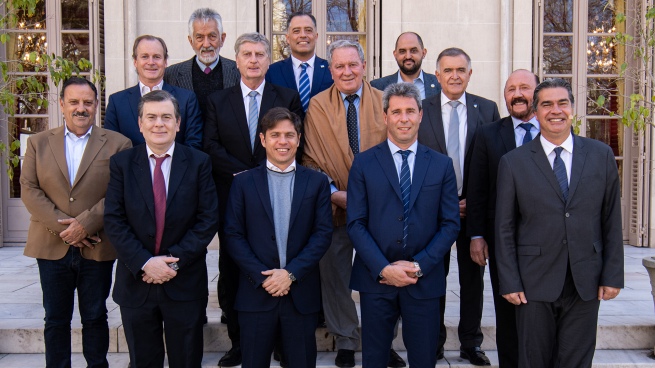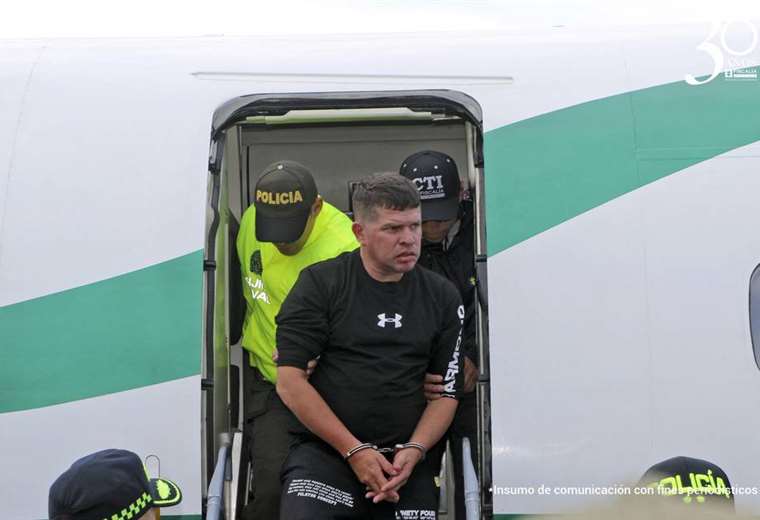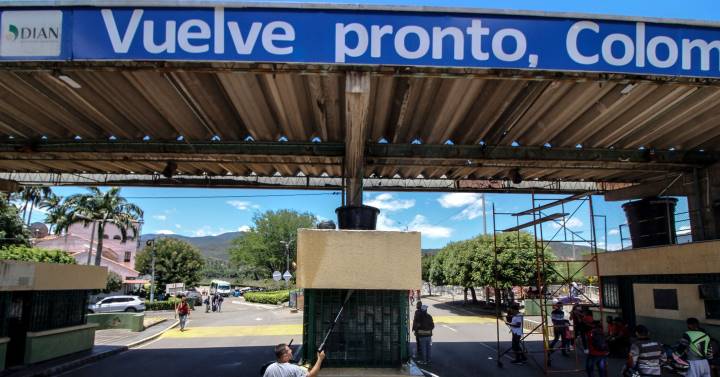The League of Governors proposed this Friday “a series of concrete measures and actions” to lower inflation levels, support economic growth, improve workers’ incomes and enhance employment opportunities.
The leaders or representatives of thirteen provinces met in the city of La Plata and at the end of the talks they issued a statement in which they stated that “the future will be promising if we are capable of transforming the restrictions of the present into opportunities for everyone.” ”.
“National unity, real federalism and economic development with social justice are the principles that unite us”they added.
The leaders began to arrive after noon at the residence of the Buenos Aires governor, Axel Kicillof, who acted as host with a barbecue, and left after 3:30 p.m. without making any statements to the press.
Participants
Participating in the conclave were Gildo Insfrán (Formosa), Gustavo Melella (Tierra del Fuego), Gustavo Bordet (Entre Ríos), Sergio Raul Ziliotto (La Pampa), Osvaldo Jaldo (Tucumán), Alberto Rodríguez Saa (San Luis), Gerardo Zamora (Santiago del Estero), Ricardo Quintela (La Rioja), Jorge Capitanich (Chaco), Sergio Uñac (San Juan), Rubén Dusso, Deputy Governor of Catamarca to replace Raúl Jalil and Eugenio Quiroga, Deputy Governor of Santa Cruz to replace Alicia Kirchner.
Before the meeting, it had transpired that the governors would analyze the first measures of the Minister of Economy, Sergio Massa, their impact on the budget allocated to the provinces, the works in execution and the energy and transportation subsidy scheme.
In the document released after the meeting, to which Télam had access, the “need to combine efforts and wills to reduce inflation, sustain economic growth, promote productive employment through the development of value chains in each of our regional economies and improve the disposable income of Argentine families”.
Budget 2023
In this line, they were in favor of “promoting a broad consensus to obtain the sanction of the 2023 budget with federal and inclusive criteria, in order to prevent the Fundamental Law of the Nation from being the subject, once again, of sectoral disputes or electoral speculation.
In addition, they indicated that it is necessary to “guarantee the continuity of public works and housing programs in order to boost economic activity and facilitate access to the social rights of our community.”
“Promote the availability for our people of the production of good quality food at affordable prices, coordinating actions between the different state levels (Nation, Provinces and Municipalities) through networks of local suppliers and popular markets,” they stressed.
In another of the points they also proposed “strengthening the articulation between our provinces of a federal network of public laboratories and local providers to reduce the price of generic drugs and supplies.”
social plans
In this meeting, the reconversion of social plans into genuine work was also discussed.
In this regard, the text states that “the greatest coordination efforts must be made to transform social plans into genuine jobs and, at the same time, protect the income of families through tariff policies that contemplate essential principles of equity and accessibility, in the sense of preserving the income and consumption structure”.
“It is necessary to resolve the asymmetries in terms of public transport subsidies and ratify a path of energy rates compatible with the increased consumption in specific areas of the country,” indicated in the document that the thirteen representatives who participated endorsed.
The governors, while admitting that “it is not easy to govern in this complex international context,” stressed that “this challenge must unite us more than ever with a single flag: the Argentine flag.”
“The future will be promising if we are capable of transforming the restrictions of the present into opportunities for everyone”, they pointed out.
Finally, they pointed out that “principles are needed to be translated into actions to build new times that allow us to unite dreams of generations into tangible realities.”
Gustavo Sáenz (Salta), Mariano Arcioni (Chubut), and Oscar Herrera Ahuad (Misiones) did not participate in this Friday’s meeting, the third.
The first took place in Chaco, and the second was planned in Bariloche, but it changed places on the hour.
On that occasion, at the end of last month, the meeting went to the Federal Investment Council (CFI) in the city of Buenos Aires, and that same day the leaders went to a meeting with Alberto Fernández at the Government House.
















